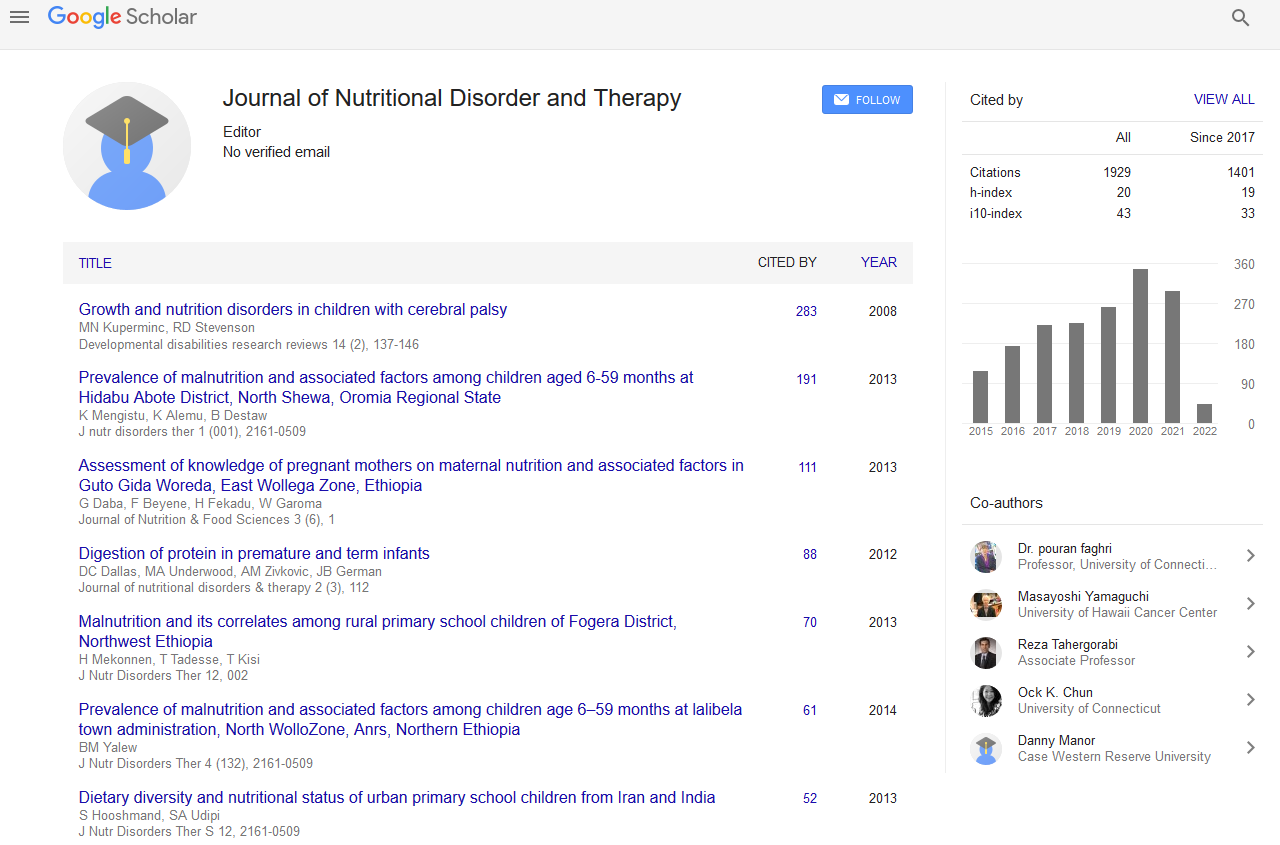Indexed In
- Open J Gate
- Genamics JournalSeek
- Academic Keys
- JournalTOCs
- Ulrich's Periodicals Directory
- RefSeek
- Hamdard University
- EBSCO A-Z
- OCLC- WorldCat
- Publons
- Geneva Foundation for Medical Education and Research
- Euro Pub
Useful Links
Share This Page
Journal Flyer

Open Access Journals
- Agri and Aquaculture
- Biochemistry
- Bioinformatics & Systems Biology
- Business & Management
- Chemistry
- Clinical Sciences
- Engineering
- Food & Nutrition
- General Science
- Genetics & Molecular Biology
- Immunology & Microbiology
- Medical Sciences
- Neuroscience & Psychology
- Nursing & Health Care
- Pharmaceutical Sciences
The anticancer mechanisms of docosahexaenoic acid (DHA) and eicosapentaenoic acid (EPA) on human hepatocarcinoma: a protoemic approach
JOINT EVENT: 13th International Congress on Advances in Natural Medicines Nutraceuticals & Neurocognition & 14th International Conference on Clinical Nutrition
July 27-29, 2017 Rome, Italy
Jennifer Man-Fan Wan and Wing-Yan Jor
The University of Hong Kong, China
Posters & Accepted Abstracts: J Nutr Disorders Ther
Abstract:
Omega-3 fatty acids have been linked to cancers prevention. However it is not clear whether there are different anticancer mechanisms between the omega-3 fatty acids docosahexaenoic acid (DHA) and eicosapentaenoic acid (EPA). The present study adpoted a protomic approach in order to identify specific biomarkers to define the signaling pathways that are unqiue to both DHA and EPA. By using the non-metastatic human epatocarcinoma cell line PLC/PRF/5, we have profiled the proteins espression of the PLC/PRF/5 cells after 72 hours treatment of DHA (200 μL) and EPA (200 μL) by the two dimensional gel electrophoresis (2D-PAGE). Differential expressed proteins were identified by the matrix-assiated laser desorption/ionization time of fight mass spectrometry (MALSI-TOF/TOF). Our results shows that both DHA and EPA inhibited cancer growth and induced apoptosis. DHA posed a stronger cytotoxic effect than EPA. Differentially expressed proteins in the signalling pathways, cell proliferation, tumor metastasis and apoptosis were found between EPA and DHA treatment. DHA suppressed calumenin and annexin A2, which are protins affecting tumor metastatic stability and EPA down-regulated. The heterogeneous nuclear ribonucleoprotein K (hnRNPK) and ubiquinol-cytochrome C reductase core protein 1 (UQCRC1) play a key role in the coordination of transcriptional responses to DNA damage and in mitochondria-to-nucleus retrograde reponse, respectively. The present study provides signature proteins associated with the anticancer mechanisms of DHA and EPA, and indicating some functional differencs betwen the two different types of omega-3 fatty acids in the prevention of human liver cancer.
Biography :
Jennifer Man-Fan Wan has completed her PhD from Southampton University and Postdoctoral studies from Harvard Medical School, Boston, USA. She is an Assoicate Professor at the School of Biological Sciences, the University of Hong Kong. She has published more than 100 papers in reputed journals and has been serving as an Editorial Board Member of Nature Partner of Science of Food.


